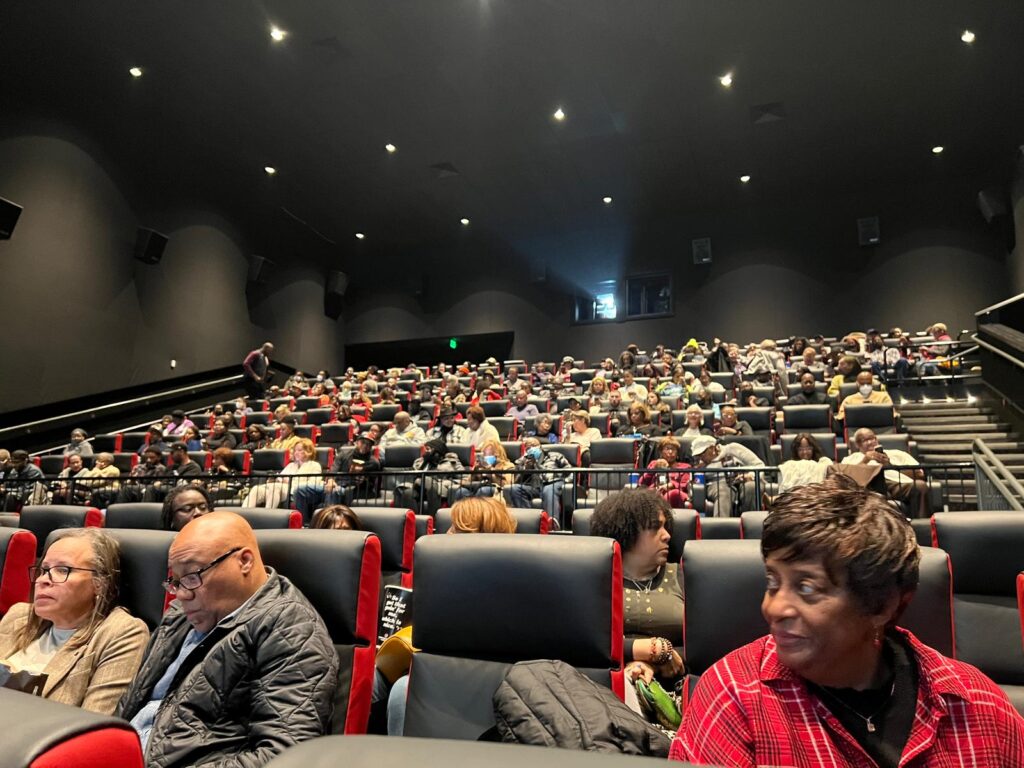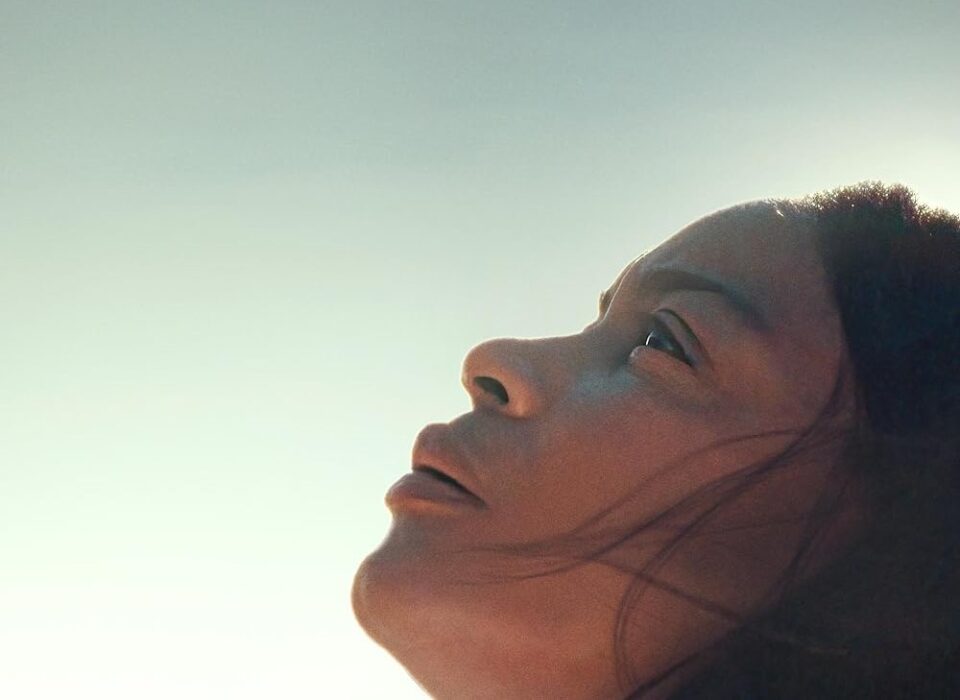BY NAMITA DOGRA SUDAN*
When will Hollywood outgrow its stereotypes of India as merely a land of poverty and chaos? Why is the modern, vibrant reality of this diverse nation consistently overlooked in Western cinema? Isn’t it time to shed these one-dimensional portrayals?
As an Indian American viewer and journalist at the pre-release screening of NEON studios’ ‘Origin’ at the Regal Atlantic Station on January 15th, coinciding with Martin Luther King Day, these questions weighed heavily on my mind. Directed by Ava DuVernay and featuring a cast led by Academy award nominee Aunjanue Ellis-Taylor, Jon Bernthal, and Niecy Nash-Betts, ‘Origin’ is inspired by Isabel Wilkerson’s bestselling book ‘Caste’ and delves into serious social justice issues. It was initially released in a limited number of theaters by Neon on December 8, 2023, and is scheduled for a broader release on January 19, 2024. The film, predominantly viewed by an African American audience, does an excellent job of addressing a sensitive and vital topic. DuVernay has crafted a brilliant movie that conveys a powerful message. However, as an Indian American journalist, my focus for this article is on the film’s stereotypical portrayal of India, a significant aspect that might be overlooked by others.

In ‘Origin’, the film tries to link India’s caste system with the hierarchies of Nazi Germany and the historic mistreatment of Black people in the United States. But in doing so, it falls into its own trap of biased views about India. The movie’s portrayal of India, especially in the latter half, sticks to the all-too-familiar stereotype. It starts with a glimpse of New Delhi’s modern airport but then quickly shifts to crowded, messy streets, reinforcing the cliched image of India.
What’s puzzling is the film’s depiction of New Delhi, India’s capital, which has clean, wide roads and luxurious hotels. Yet, the film’s main character, a celebrated Pulitzer Prize-winning journalist, bypasses all this. Instead, she heads straight to the shabbiest hotel she can find, traveling in an auto-rickshaw. It’s almost comical how the film ignores the fact that in real life, New Delhi is well-equipped with taxis, cars, and even Uber services. This choice in the film feels like a deliberate effort to ignore the modernity and progress of India’s capital city.
This portrayal starkly contrasts with scenes set in Germany, where discussions about the Holocaust and casteism are held in sophisticated, comfortable settings.
The film touches on the caste system and the treatment of Dalits in India. While it’s true that Dalits have faced severe hardships, the film seems to ignore the significant progress made in recent years. India’s reservation system reserves around 15% of educational seats and government jobs for Dalits, a crucial step towards social equality. This progressive policy, along with the rise of Dalit-led political parties like the Bahujan Samaj Party, is conspicuously absent from the narrative. Mayawati, a Dalit and a member of the Bahujan Samaj Party, served four terms as Chief Minister of Uttar Pradesh, advocating for Dalit rights, yet such political empowerment is overlooked in the film.
The film also misses highlighting the increasing success of Dalits in entrepreneurship. The Dalit Indian Chamber of Commerce and Industry (DICCI) promotes businesses led by Dalits, showcasing many success stories. These instances of overcoming social barriers to achieve economic success are absent in DuVernay’s portrayal.
While the film does not err in depicting the historical and ongoing struggles of Dalits, it tends to exaggerate these aspects, presenting them as commonplace in modern India. The truth is more nuanced. While Dalits continue to face challenges, including violence and discrimination, these incidents are not as pervasive as the film suggests. India’s social landscape is changing, although gradually. In her NPR interview, the director of “ORIGIN” disclosed that the film employed actual Dalits who work as manual scavengers, a practice that, while declining, still exists in India. However, it’s important to note that the construction of dry toilets and the employment of manual scavengers were banned in India back in 1993. This legislation was further expanded in 2013 to include a prohibition on human involvement in cleaning sewers, ditches, pits, and septic tanks. Regrettably, this critical information was not included in the movie. Additionally, the film repeatedly refers to Dalits as ‘Untouchables’, a term that has been legally obsolete since the introduction of India’s 1950 constitution, which formally abolished the practice of untouchability.
Managing a nation as large and varied as India, especially after enduring 200 years under British colonial rule, is an enormous task. Despite these hurdles, India has achieved remarkable growth, rising to become the world’s fifth-largest economy within just 75 years of gaining independence. The country’s space program, led by the Indian Space Research Organisation (ISRO), has impressively reached the Moon, Sun, and Mars, showcasing India’s scientific and technological advancements. However, Hollywood often overlooks these accomplishments. By not acknowledging India’s progress, films like ‘Origin seem to maintain a narrative that places the Western world in a more favorable light, ironically paralleling the movie’s underlying theme of one race being perceived as superior to another.
Such one-dimensional portrayals have real-world consequences, affecting how Indians, especially those living abroad, are perceived and treated. The stereotypes perpetuated by films like “ORIGIN” can lead to discrimination, hate crimes and a skewed understanding of Indian society.
Exploring the core of “Origin”
DuVernay’s cinematic interpretation of Isabel Wilkerson’s insightful 2020 book, “Caste: The Origins of Our Discontents,” however, is profound. DuVernay, initially captivated by the book’s exploration of deep societal divides, reread it twice, finding inspiration for her film.
The film stars Aunjanue Ellis-Taylor as Wilkerson, embarking on a journey to understand the implications of caste systems globally and how they relate to the Black experience in America. The movie begins with the impactful scene of Trayvon Martin’s tragic death in 2012 and the subsequent acquittal of George Zimmerman. In India, the film unfolds through the lens of Dr. B.R. Ambedkar’s life, showcasing his personal struggles and immense contributions to the fight against caste discrimination in India. Dr. Ambedkar, a prominent Dalit icon and the principal architect of the Indian Constitution, played a pivotal role in campaigning against social discrimination towards the untouchables and in supporting the rights of women and labor. His efforts were instrumental in shaping modern India’s legal framework for equality and social justice. “Origin” is more than just a film. It’s DuVernay’s hope that its release in the pivotal year of 2024 will ignite meaningful conversations about racial dynamics and power structures in contemporary America.
While “ORIGIN” is undoubtedly a powerful film that resonates on many levels, its failure to portray a balanced view of India is a significant oversight. Hollywood’s influence is far-reaching, and with that comes the responsibility to depict cultures accurately and fairly. It’s time for Hollywood to move past its preconceptions and embrace the diverse realities of countries like India, showcasing both their challenges and their progress.
*Namita Dogra Sudan is the video news producer/editor of NRI Pulse.





